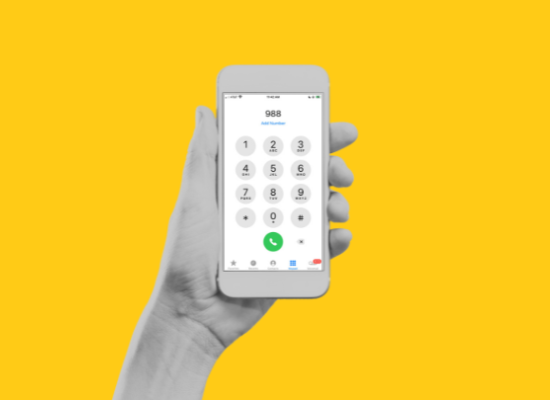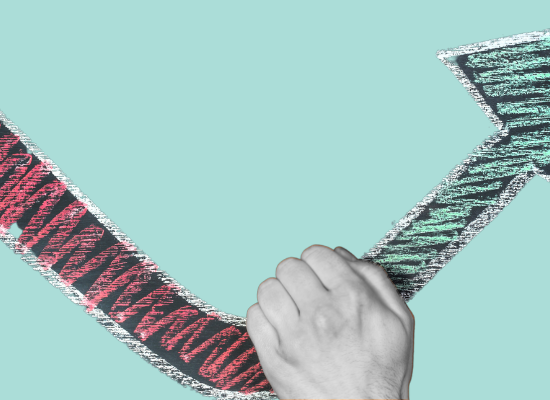
Stephanie Hepburn is a writer in New Orleans. She is the editor in chief of #CrisisTalk. You can reach her at .
It was the height of the pandemic when Daniel Hobdy relapsed. “I spent most of my time in my room, playing video games,” he says. “I had no outside connections.” Like elsewhere across the United States, the face-to-face support group meetings he’d gone to stopped, and the only two people he saw regularly were his mother and sister. “For as much love as they gave me, I was still dealing with addiction and mental health issues.” Sometimes he forgot to take his medication. Other times, he chose not to.
Six months into the pandemic, he could feel himself worsening. “I felt disconnected and started reaching out for activities to do, anything.” He picked up a couple of pandemic hobbies and started gardening and making artisanal bread. “But it didn’t fix what was wrong,” he says. “Between isolation, lack of mental healthcare, and lack of connection, I felt like people gave up on me.”
In June 2021, Daniel’s mother, Gerri Hobdy, discovered him in a methamphetamine-induced psychosis and took him to the Bridge Center for Hope in Baton Rouge, a behavioral health crisis stabilization center. “I gave it to God,” she says. “I had learned that it was his journey, and he would only get better if he decided he wanted to get better.”
Daniel used to hate it when his mother said, “I gave it to God.” “She’s always been my support,” he explains. But today, he says the moment she took him to the center was a turning point in his life. “It was the best thing she could have done for me.” He instantly connected with the peer support specialists and people at the center experiencing their own crises.
“As humans, we need to feel understood, and this was a connection with people outside of my family. I ate that up like a starving man at Thanksgiving. I was like, ‘Okay, this is what it’s supposed to be like—this is what compassion looks like.’”
The United States has been experiencing an overdose epidemic, with deaths spiking by 30% between 2019 and 2020. The following year, deaths from psychostimulants (including methamphetamine) jumped by roughly 34%. To address the rising numbers, in May, the U.S. Health and Human Services announced nearly $1.5 billion in State Opioid Response grant funding opportunities for states and territories. Xavier Becerra, HHS secretary, said in a press release that “less than 1 out of 10 people in the United States who need addiction care get it.”
In Louisiana, drug overdose deaths rose by 56% from March 2020 to March 2021. A few months ago, Chief Murphy J. Paul shared with #CrisisTalk that Baton Rouge has seen a 48% rise in overdose-related 911 calls since 2019. “The deaths, interruption of normalcy, and economic hardship presented in communities all across the country from the pandemic create trauma,” he said, “and some people are turning to substances to cope.”
Daniel, a military veteran with post-traumatic stress disorder, struggled even before the pandemic. He’d recently been incarcerated and was navigating his reentry when he found a support system at the Louisiana Department of Veterans Affairs. “I went to meetings with fellow veterans and dipped my toe into the water of normal-people-life,” he laughs. “And it wasn’t that bad.” However, when Covid hit, those supports dissipated, and he felt a constant heightened fear of what was to come.
While incarcerated, Daniel had gotten Covid and developed a serious lung infection. “For two weeks, they handcuffed me to a hospital bed with tubes all over me to drain the infection, and I couldn’t call anyone.” The looming fear of his mortality and inability to contact his family wore on him. “I didn’t know if I wanted to live or die.”
Isolation during the pandemic took Daniel back to a space of ongoing fear and loneliness. “The worst place for me is inside my own head,” he says. He found the unknowns associated with the pandemic worse than the challenges he’d navigated as a soldier. “As a soldier, you’re prepared for what you might encounter.” However, when he came home from Iraq in 2008, so did his hypervigilance, an elevated state later exacerbated by the pandemic.
Soon after returning home from Iraq, he went to a music festival with his mother and a family friend. When Daniel saw a woman come up behind the family friend, he blocked her. “It was his wife,” he says, “someone I’d known my entire life, but that was the state I was in.”
In 2019, Staff Sgt. Charles F. Pugsley shared with #CrisisTalk that each time he rolled outside the wire in Iraq, going beyond the relative safety of the base, he was resigned to die. “In war, there’s a constant feeling of not being safe and a sense of peace that comes with accepting that you’re going to die,” he said. “It also messes with your head when you make it home and never expected to.”
Isolated in his room, the days slowly rolled by, and Daniel’s chronic alertness remained. “The artillery of monotony bombarded my only barely functional coping mechanism for dealing with life,” he says. As a result, Daniel felt what he calls “soul tired.” The continued heightened state was taking its toll, physically and emotionally. “I felt more terror, existential dread, and pressure sitting in that beige room than as a soldier. There was no enemy to fight—it was just myself, isolation, fear, guilt, and doubt.”
The crisis stabilization center allowed Daniel to breathe and share his challenges. “I got a glimpse outside the battlefield of hyper-awareness and anxiety,” he says. He sat in a reclining chair, ate a pre-made sandwich, and felt calm. “The only way I can describe it is how one of my female friends does. She said it’s like working a hard day, coming home, and taking your bra off. I don’t know what that’s like, but I can imagine a feeling of pure relief.” He says all people have their own individual binding—adverse experiences that hurt them—and peer support specialists help people to take the binding off.
“Taking that first breath was incredibly important. You don’t talk about mental health as an African American male or veteran. You rub some dirt on it and keep going.”
At the center, he met people facing a variety of issues. “It was like a Swiss army knife of people with problems,” he laughs. He connected with another veteran dealing with PTSD, a woman facing trauma and loss, and a man battling substance use. “Peer counselors showed me other tools for navigating life—the screwdriver of communication, the hammer of therapy, and the socket wrench of recovery.” Looking back, he appreciates that people didn’t have the same experiences. “It made me realize my trauma is no greater or less than someone else’s.”
Today, Daniel is a peer support specialist at a treatment facility and works with a community outreach program started by Mayor Sharon Weston Broome. “It [being a peer support specialist] is the opposite of Namaste: ‘The light in me sees the light in you,’” he says. “Instead, it’s: ‘The hurt in me recognizes the hurt in you. How can I help?’ That’s compassion.”
This article was originally published on October 11, 2022.









